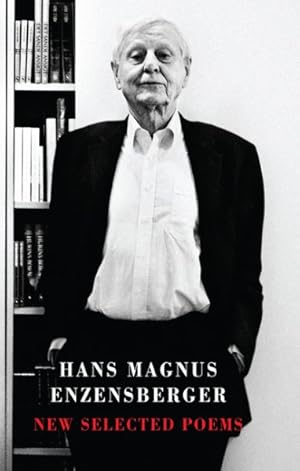As well as being Germany’s foremost poet of the postwar period, Hans Magnus Enzensberger was a provocative cultural essayist and one of Europe’s leading political thinkers. No British poet could match him in his range of interests and his moral passion.
Enzensberger was a cultured, learned, widely knowledgeable man, but his poems wear their knowledge, learning and culture very lightly. Perfectly at ease in a variety of poetic forms, he presents us again and again with things that matter.
This is intelligent and pointed poetry in the tradition of Brecht, humanely political and generously engaged. The poems have the ease and the lightness of real mastery. They are moral in their insistence that human life can be lived well or badly, that it is up to us to choose well and to act wisely. In his later years Enzensberger was writing with increased awareness of mortality, yet addressed social and political dangers and evils with undiminished urgency.
This expanded bilingual edition of his Bloodaxe Selected Poems includes poems from his later collections Kiosk (1995/1997), Lighter than Air: moral poems (1999/2002), and A History of Clouds (2003/2010), with English translations by Michael Hamburger, Hans Magnus Enzensberger, David Constantine and Esther Kinsky.
‘Savage, funny, exact, widely informed, immune to sentiment, Enzensberger is the kind of public author we could do with here and now.’ – Sean O’Brien, Guardian
'Hans Magnus Enzensberger is a major European voice who will broaden the horizons of those familiar only with home-grown poetry. He is wise, acerbic and profound. He is also very entertaining. His New Selected Poems is a substantial volume of work to which one will return with increasing profit and enjoyment.' - David Cooke, The High Window
Hans Magnus Enzensberger (1929-2022) was Germany's foremost poet of the postwar period, as well as a provocative cultural essayist, a highly influential editor and one of Europe's leading political thinkers. His poetry's social and moral criticism of the post-war world owed much to Marxism, yet insisted on the freedoms often denied by Communist governments; like Orwell he maintained that satire and criticism should not be party-political. Born in 1929, he grew up in Nazi Nuremberg. He studied in Germany and France, and in Freiburg under Martin Heidegger. He was a founder member of Group 47, a loose grouping of disaffected German intellectuals including Heinrich Boll and Gunter Grass, generally viewed as the most influential movement after the war.
